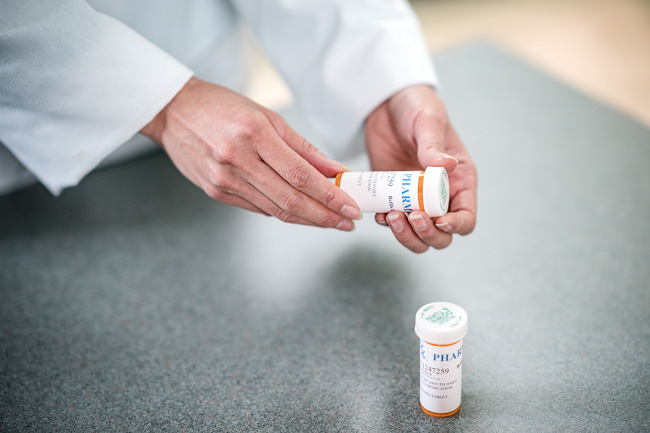Think older adults are the only ones who should worry about heart disease? Not so.
Getting a checkup every year can help prevent or delay the onset of disease, reduce overall healthcare costs long term, and empower you to lead a healthy, productive life. Call your doctor to set up an appointment. If you don’t have a doctor, you can search the Find a Doctor tool to find the one that’s right for you.
Heart disease is the leading cause of death among Americans. And your habits today will affect your heart’s future. Many adults under 65 already have warning signs of heart disease.
116 million U.S. adults now have high-blood pressure, according to the Center for Disease Control. That can lead to heart disease if left untreated. The guidelines changed in November 2017, a reading of 130 on top or 80 on the bottom is now considered high blood pressure.
The good news is that you’re not powerless against heart disease. You can lower your risk by making small diet, exercise, and lifestyle changes. Here are 7 steps to protect your heart’s health.
1. Avoid hidden sugars
.png)
No surprise, right? But its importance can’t be stressed enough. According to the American Heart Association, women should get no more than 100 calories a day from added sugar. Men should get no more than 150 calories a day.
This equals about six teaspoons for women and nine teaspoons for men. You don’t have to worry about natural sugars in fruits and low-fat dairy products. But you should look for ways to cut back on added sugars. That means avoiding sweet drinks and packaged foods. For example, each flavor pump in a flavored coffee drink has 20 to 60 calories, largely from sugar. Use less flavoring, or switch to coffee with a splash of milk. Check out more sugar-reduction tips.
2. Eat more fiber
Fiber is a heart-health all-star. It’s shown to help lower cholesterol, blood pressure, and blood sugar levels. It can also help with weight loss. Choose fiber-rich whole grains, such as whole wheat bread and brown rice. Avoid low-fiber refined grains, like white bread and white rice. Berries, broccoli, and beans of any sort are also full of fiber.
3. Stand when you can
Recent research suggests that the more hours we sit, the higher our cardiac risk. Pay attention to the amount of time spent driving, watching TV, or sitting at your desk. Get up and move every 20 minutes. Pace during calls, take a break for a walk, or schedule a walking meeting.
4. Limit pain medications

Do you respond to pain by taking pain relievers? Hold off, or check with your doctor first. Pain relievers, such as ibuprofen, naproxen, and diclofenac, can spike your risk for heart attack and stroke. That’s especially true if you have diabetes, high blood pressure, or high cholesterol. Try other ways to relieve pain. Do some gentle stretches if your back is hurting, or massage your hands if they’re aching. If you continue to experience pain, check in with your doctor.
5. Get quality sleep
It’s easy to underestimate the importance of sleep, but you shouldn’t. Research has tied lack of sleep to high blood pressure and obesity. Aim to sleep for seven to nine hours, and avoid caffeine after lunch. It’s also a good idea to avoid working, watching television, or using a computer in bed. Let your body associate your bedroom with rest.
6. Manage stress

Uncontrolled stress can harm the heart. Stress hormones make your heart rate, blood pressure, and blood sugar levels go up, which causes damage over time. Many studies show that mindfulness meditation helps fight the negative effects of stress on the heart. Start with a simple breathing exercise: sit in a comfortable position, and take 10 deep breaths. Spending time with loved ones or on your hobbies can also help relieve stress.
7. Volunteer for a good cause
It turns out that helping others can boost your quality of life, too. Volunteering can give you a sense of purpose and a chance to use your time for something you care about. Why not make it a heart-healthy project? Sign up for a walking event that raises money for heart disease or other health research.
Remember that you’re not alone in managing heart disease risk. Premera is here to support you on your journey to your personal best health.
.

